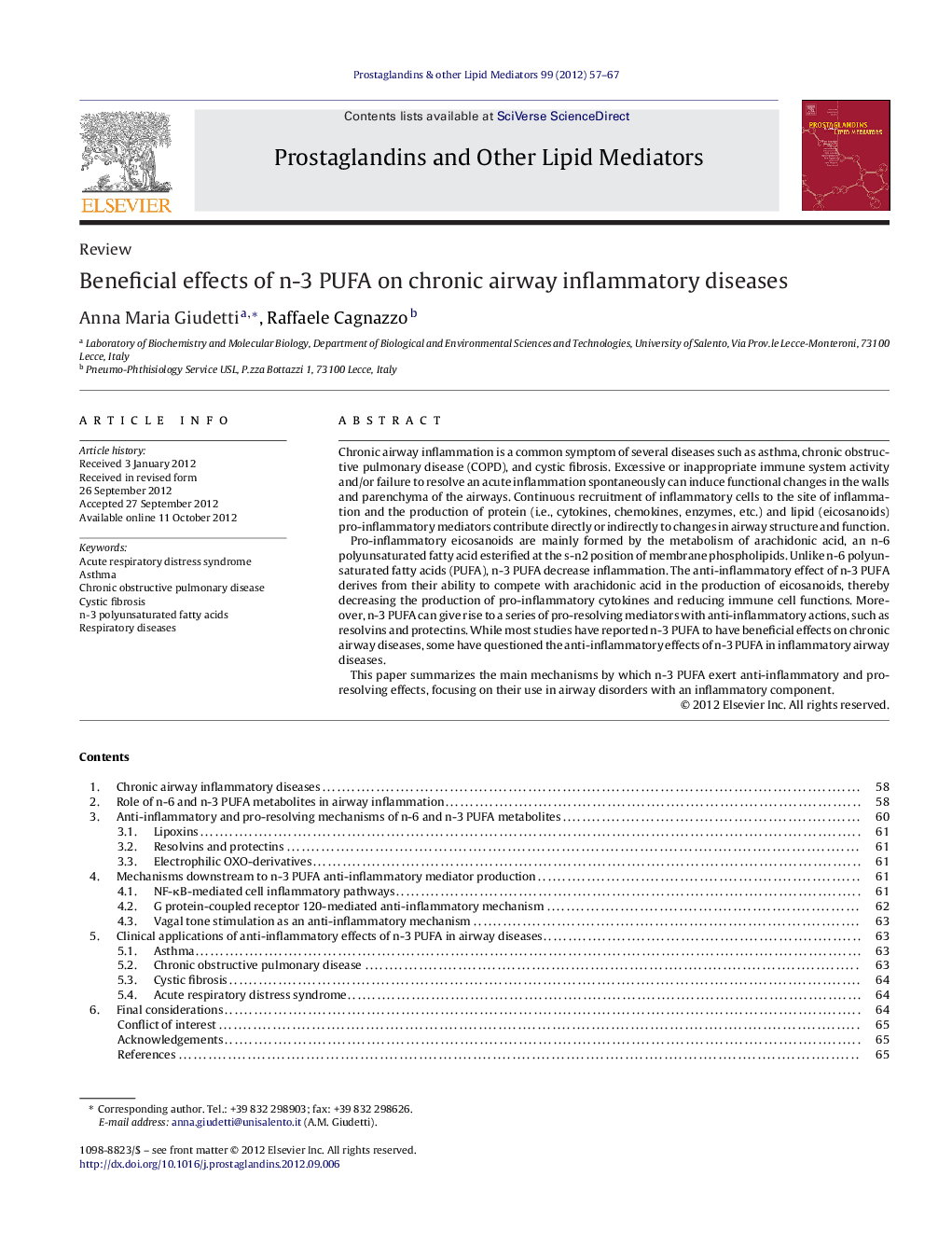| کد مقاله | کد نشریه | سال انتشار | مقاله انگلیسی | نسخه تمام متن |
|---|---|---|---|---|
| 2019778 | 1542223 | 2012 | 11 صفحه PDF | دانلود رایگان |

Chronic airway inflammation is a common symptom of several diseases such as asthma, chronic obstructive pulmonary disease (COPD), and cystic fibrosis. Excessive or inappropriate immune system activity and/or failure to resolve an acute inflammation spontaneously can induce functional changes in the walls and parenchyma of the airways. Continuous recruitment of inflammatory cells to the site of inflammation and the production of protein (i.e., cytokines, chemokines, enzymes, etc.) and lipid (eicosanoids) pro-inflammatory mediators contribute directly or indirectly to changes in airway structure and function.Pro-inflammatory eicosanoids are mainly formed by the metabolism of arachidonic acid, an n-6 polyunsaturated fatty acid esterified at the s-n2 position of membrane phospholipids. Unlike n-6 polyunsaturated fatty acids (PUFA), n-3 PUFA decrease inflammation. The anti-inflammatory effect of n-3 PUFA derives from their ability to compete with arachidonic acid in the production of eicosanoids, thereby decreasing the production of pro-inflammatory cytokines and reducing immune cell functions. Moreover, n-3 PUFA can give rise to a series of pro-resolving mediators with anti-inflammatory actions, such as resolvins and protectins. While most studies have reported n-3 PUFA to have beneficial effects on chronic airway diseases, some have questioned the anti-inflammatory effects of n-3 PUFA in inflammatory airway diseases.This paper summarizes the main mechanisms by which n-3 PUFA exert anti-inflammatory and pro-resolving effects, focusing on their use in airway disorders with an inflammatory component.
► Dietary essential polyunsaturated fatty acids (PUFA) of the n-6 and n-3 series play a pivotal role in inflammation.
► n-6 long chain PUFA, produced by linoleic acid metabolism, once incorporated into membrane, contribute to inflammation.
► Metabolism of membrane n-3 PUFA gives rise to a number of mediators with lesser inflammatory effects, compared to n-6 PUFA.
► Beneficial effects of n-3 PUFA supplementation have been reported on some airway diseases with an inflammatory component.
Journal: Prostaglandins & Other Lipid Mediators - Volume 99, Issues 3–4, December 2012, Pages 57–67